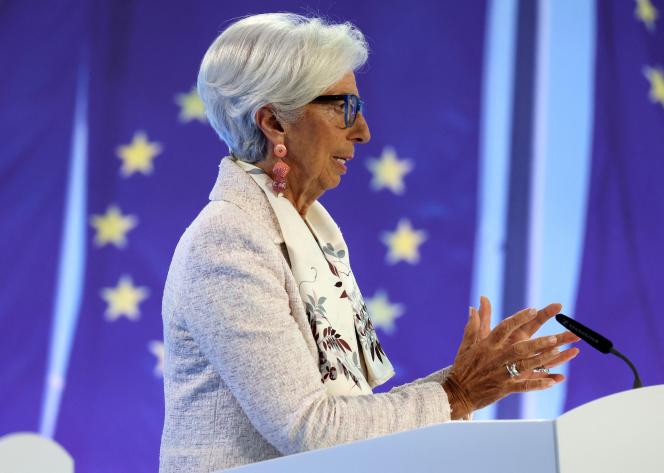This is bad news for households and for the European Central Bank (ECB). In August, inflation in the euro zone ceased its downward movement, which had begun since November 2022. It remains at 5.3%, the same level as in July, according to data published on Thursday August 31, by Eurostat, the European Statistical Institute.
This is essentially the consequence of the recent increase in oil prices. The barrel of Brent, which had soared to more than 110 dollars (101 euros) at the start of the war in Ukraine, but had gradually fallen back to around 70 dollars, has resumed an almost 20% rise over the past two months, now hovering around $85. The drop in black gold production, decided by the Organization of Petroleum Exporting Countries, OPEC+, explains most of this movement.
This pressure on energy is felt throughout the euro zone. Inflation is rising in ten of the twenty single currency countries, including Belgium, Spain, Ireland, Portugal and Austria. The increase is strongest in France, where it goes from 5.1% in July to 5.7% in August (the statistics harmonized at European Union level are slightly different from those of INSEE, which places inflation at 4.8%). In addition to the impact of oil, French prices are affected by the rise, the 1er August, 10% of the electricity tariff.
Consumer confidence is falling
But even beyond this cyclical effect, the rest of inflation seems to be stagnating. The so-called “underlying” price (excluding the prices of food, alcohol, tobacco and energy, which are very volatile) reached 5.3% in August. It’s a little better than 5.5% in July, but it’s the same level as in May. The trend is not much clearer for the prices of services, which account for almost half of consumption, the annual increase in which has fallen marginally, from 5.6% to 5.5%.
For European households, this persistence of inflation means that their purchasing power continues to erode. Over two years, the rise in prices in the euro zone is now close to 15%, forcing a reduction in their consumption, in particular for the most modest households. The French have sharply reduced their spending on food, whose sales in volume fell by 7.9% between July 2022 and July 2023. In Germany, retail sales fell by 0.8%, in July, compared to compared to June.
If the labor market remains solid, all the signals point to stagnation in the European economy in the third quarter, or even a slight decline. The consumer and business confidence index in the euro zone, published on Wednesday August 30 by the European Commission, fell once again, to reach its lowest level since the pandemic.
You have 32.14% of this article left to read. The following is for subscribers only.
